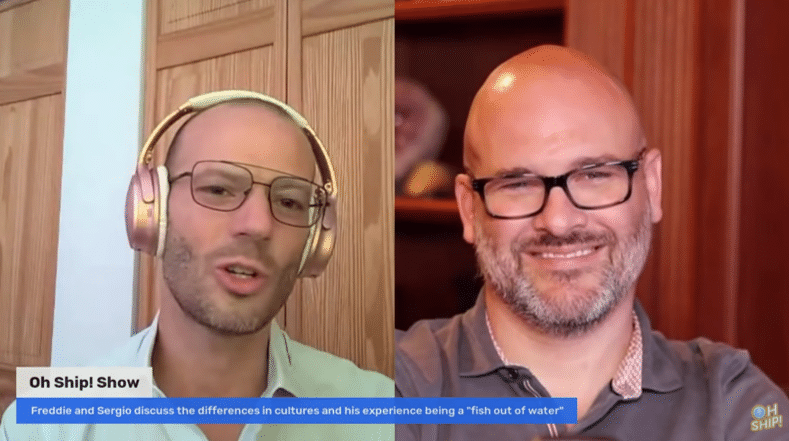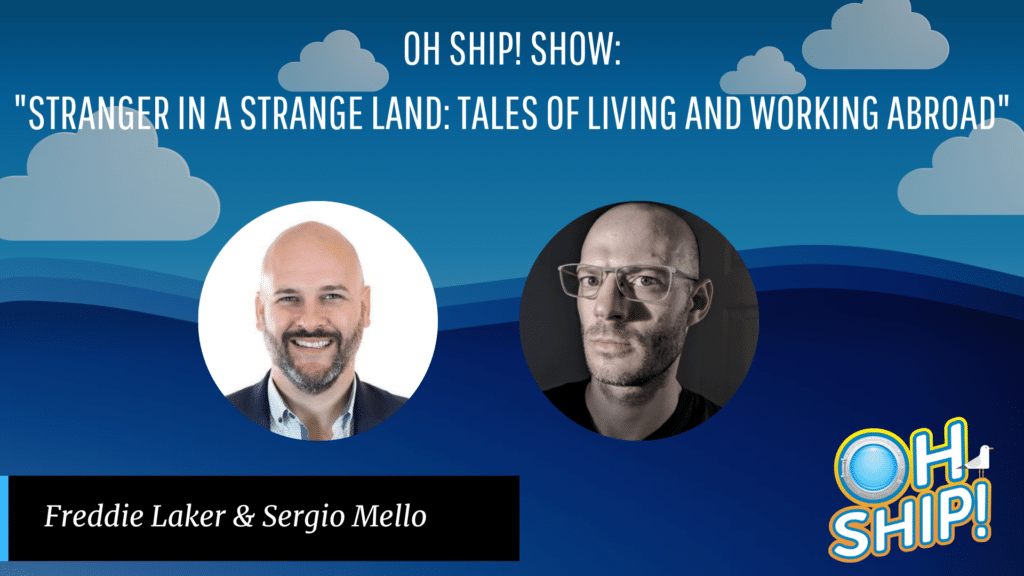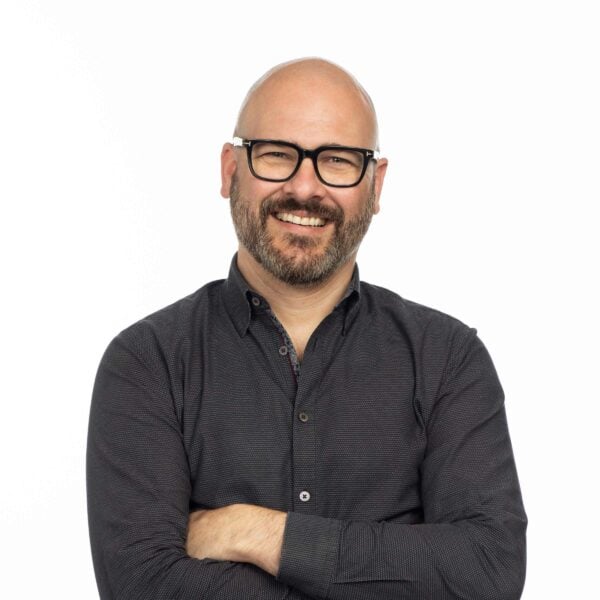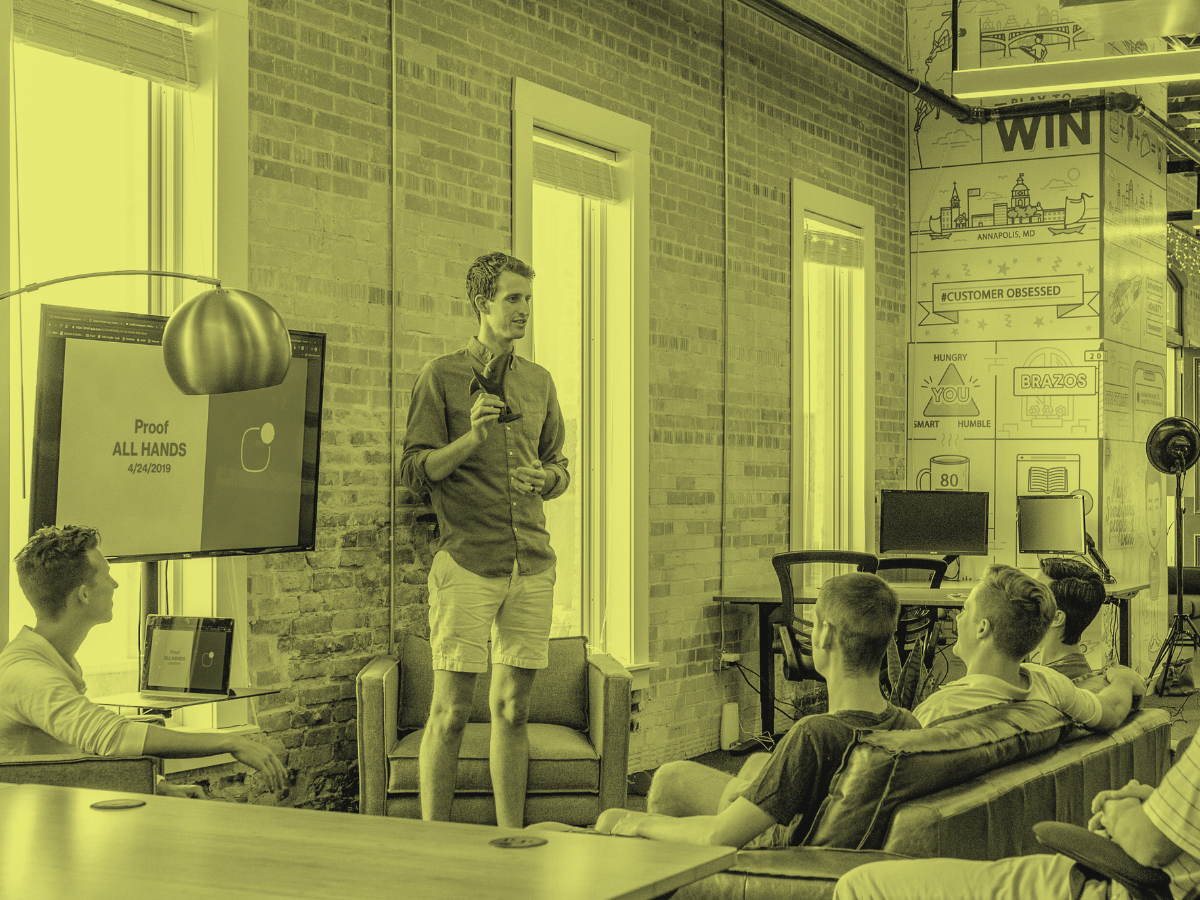Host Freddie Laker speaks with Sergio Mello about leading in foreign cultures.

The digital nomad movement is real, but it didn’t start with the sudden shift to remote work during the pandemic. For many, living and working abroad was a way of life long before more companies embraced remote work and expatriatism. For our recent Oh Ship! Show guest Sergio Mello, that reality led to a career full of innovations and ideas that have taken him around the world. Here’s what we can gain from his cultural learnings and why living and working abroad contributes to personal and professional growth.
Introducing Sergio Mello

Sergio Mello is an Italian entrepreneur and founder of innovative travel startup Satisfy. Prior to this, he served as the CEO of the teaching company Tanjim, as well as stints at Reddit and Travel Store. What makes him an expert to speak on living and working abroad? Simple: he’s done plenty of both in places like Seoul, Korea, Cape Town, South Africa, and Hong Kong. Here’s a little more about his experiences being a stranger in a strange land and the incredible epiphanies he’s had while leading in foreign cultures.
Laker: You’ve been pretty well traveled all your life. Was it a big jump to make for you to become a global entrepreneur?
For Sergio, traveling the world has been a natural part of life since childhood. His parents were global travelers and brought him along for the journey. “I’m accustomed to seeing other places and speaking languages, as well as packing smartly in a single suitcase and taking a one-way flight.”
Sergio decided to take a global approach to his work and chose China as his first destination, taking nothing more than a suitcase and a laptop. “I was in a time of my life where I wanted drastic change for many reasons.” But Sergio may have gotten a little more than he bargained for when he got struck by lightning one day. He decided it was time to make a few more changes in his life.
Laker: What did you immediately notice when you came back home after having lived and worked abroad for a few years? Was life much different than how you left it?
Sergio lived and worked abroad in stints, never in a permanent way. But the more he immersed himself in other areas of the world, the more he realized just how valuable his experiences were.
“After spending the first few years abroad, especially after Korea, I went back to my hometown, and I had dinner with my friends I used to hang out with years earlier. We went to the same restaurant, had the same food and the same conversations with the same people. It almost felt like life stopped there. I realized that without exposure to new elements, without new information, no one can progress really fast.
First of all, growth has to be proportional to the amount of new information you drink from the fire hose. So you should always be drinking from a fire hose. New information is a source of motivation. So I started doing endurance sports. I started cutting a lot of ties with time and acquaintances. It’s like jumping out of the nest as little birds when they’re ready to go and just start flying and finding their way. And so I decided to do that, too.”
Laker: You’re a solo entrepreneur. How did you find support or grow your support network as you lived abroad?
According to Sergio, you could go live and work abroad with zero support network, but it’s going to take you a little more time to figure out certain things. “I usually had a first contact situation where I could start from somewhere with confidence, either someone that had worked there before or got introduced to someone by someone else. This was during the time before social media, so you couldn’t just go to LinkedIn to find new connections. But I never really had a ‘blank page’ scenario. Once you commit to finding a new environment, you find ways to make it work for you.”
Laker: What were some of the unique cultural challenges you faced trying to grow a business abroad?
Cultural differences abroad impact the way an entrepreneur does business, and it took Sergio about a year to figure out all the little intricacies.
“Even after so much experience, you always find little differences in every microculture. My favorite is shaking hands. How do you introduce yourself? How do you make the first ice breaker move from country to country? When you introduce yourself in certain places, you should also hug and kiss. In other places, you should hold hands for a while. In certain African countries, we walk around holding hands with your business partner as a show of trust.”
Laker: Was there anything about working and living abroad that changed you fundamentally as a person?
“I believe a big issue that I’ve discovered is the importance of understanding where the other party is coming from. How they think is everything because it’s the only way to resolve conflict or find a solution. I only realized this after many years of investing in personal growth. I was leading an office of Taiwanese developers at a South African company. At some point I had to hand off some duties and that’s when I realized how I got so used to switching the way I was behaving and relating to people in South Africa versus Taiwan. I could not bring all of them to the same meeting because I had two different ways to talk to them. Different strategies, approaches, warnings, speed of speech, everything was different. And so I had to rethink the way I could interface them at that point because I had always been the proxy.”
According to Sergio, these changes can come whether you realize it or not. They become a natural part of you, and that’s how you know you’ve truly grown as a person and a professional.
Hear the entire episode of the Oh Ship! Show featuring Sergio Mello and his cultural learnings.




